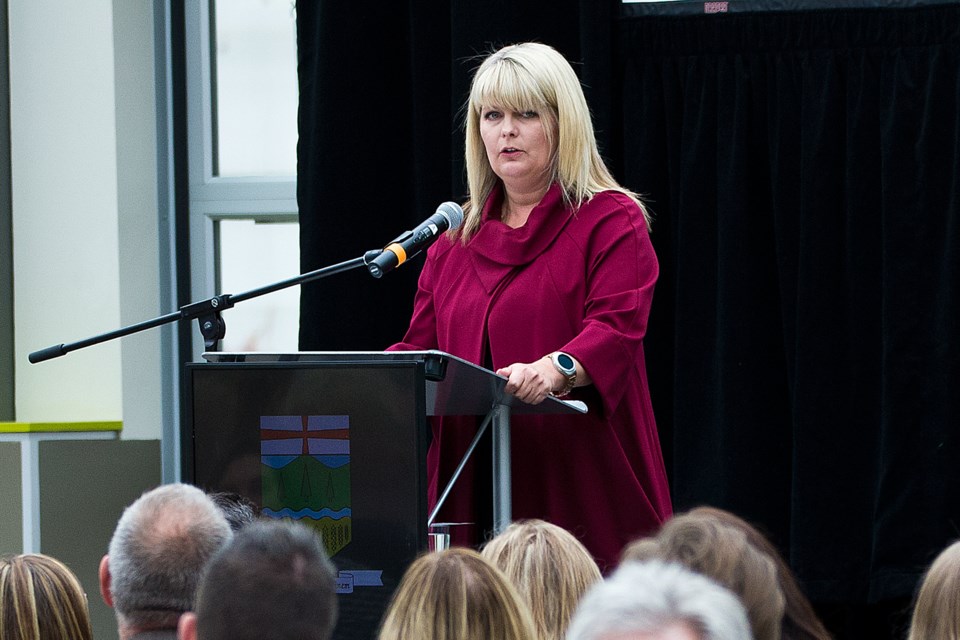The federal government needs to throw cities a financial lifeline so they can provide vital services during the cornonavirus pandemic, says St. Albert’s mayor. But St. Albert’s MP says those dollars would be better spent keeping small businesses afloat.
St. Albert Mayor Cathy Heron spoke before an online meeting of the House of Commons standing committee on finance April 24 on the effects of COVID-19 on municipalities.
Heron told the committee that St. Albert has laid off 30 per cent of its workforce and faces a $4.6- to $6-million deficit this year due to the pandemic.
“We’re facing a crisis,” she said.
Cities are bleeding cash right now due to the twin challenges of lower revenues through deferred taxes and lower facility fees, and higher costs through additional services offered to help citizens get through the pandemic, Heron said in an interview. Meanwhile, cities still have to provide essential services such as fire, police, ambulance, flood prevention and trash collection.
“As municipal leaders, we’re going to be on the front lines of reimagining our communities in the post-COVID world, but we need the tools to do it,” Heron told the committee.
Speakers at the committee asked the federal government for immediate financial aid, with Bill Karsten, president of the Federation of Canadian Municipalities, specifically calling for $10 billion in emergency funding to be sent to local governments in the next four months.
“Canadian municipalities are facing a financial crisis that puts Canadians at further risk,” he said, with billions lost from deferred or cancelled property taxes, utility charges and user fees, much of which is unrecoverable.
Heron said in an interview municipalities have never gone with their hands out to the federal government like this, and this was a one-time request to deal with a national crisis.
“Honestly, I don’t know if $10 billion is enough,” she said, noting other cities face far bigger deficits than St. Albert.
Cooper skeptical
COVID-19 has certainly hit cities hard when it comes to finances, and the federal government does have to help somehow, said St. Albert-Edmonton MP Michael Cooper, who sits on the House of Commons finance committee. But the federal government isn’t flush with cash, either, and is already faced with at least a $200-billion deficit this year.
“I’m not sure that asking for $10 billion that will last for four months with no strings attached (to be sent) directly to municipalities is necessarily the answer or at least realistic,” Cooper said.
Municipalities have seen revenues grow at twice the rate of inflation and population growth in recent years and received significant federal infrastructure support, Cooper said.
While extending the 75-per-cent wage subsidy offered to businesses to municipalities might be possible, Cooper said the federal government should focus its support on the private sector, as it is small businesses that pay taxes to municipalities.
“Simply handing out billions and billions and billions and billions of dollars is not going to be sustainable.”
Cities will either have to raise taxes or cut spending if they don’t get federal support, and they’ve already cut spending, Heron said. No cash injection means more tax burden on those small businesses. Cities can borrow money, but the federal government can do so more easily and at cheaper rates.
Whatever support the federal government gives, it has to be quick, non-partisan and not weighed down by red tape, Heron said. All three levels of government have to work together in this crisis, and cities have done their part by cutting jobs and deferring spending.
“We’re not being irresponsible children just asking for another raise in our allowance,” Heron said.
“We have to have that conversation to see how (the federal government) can help municipalities.”




